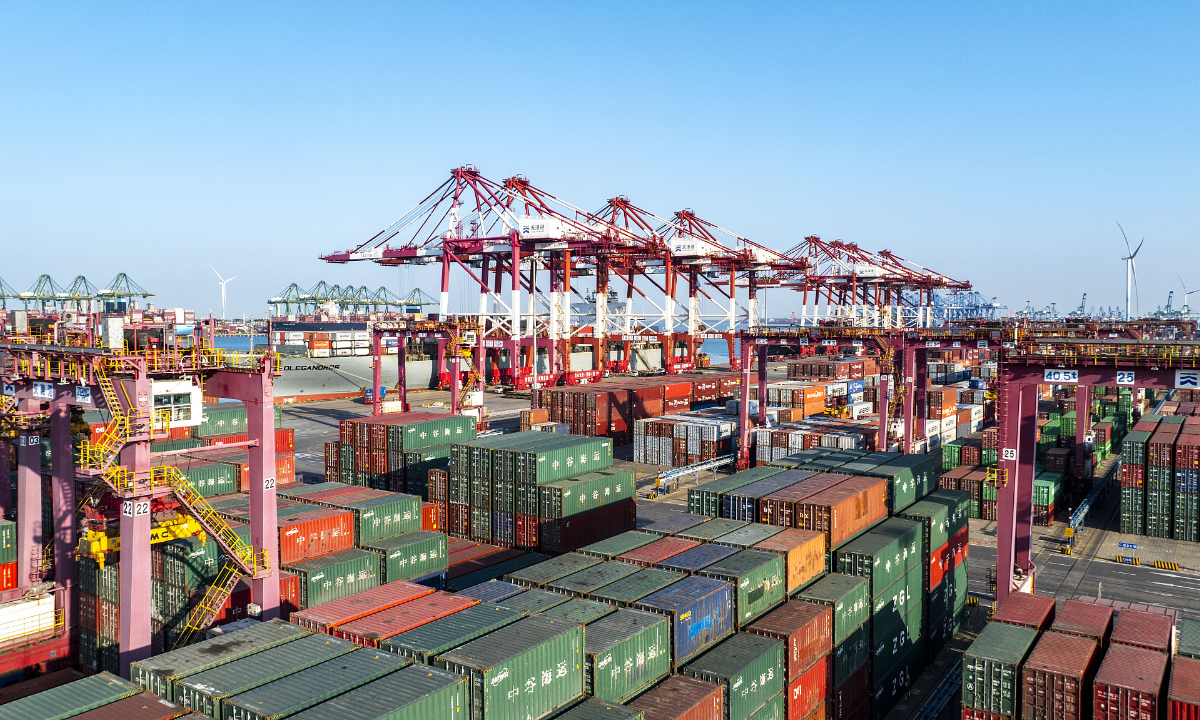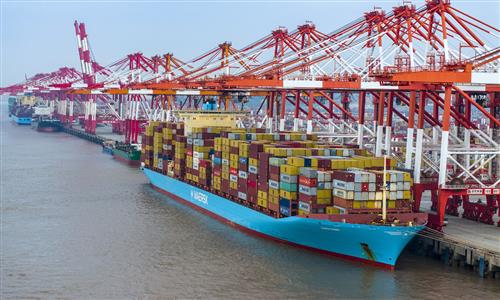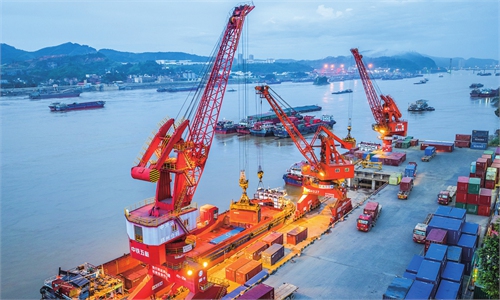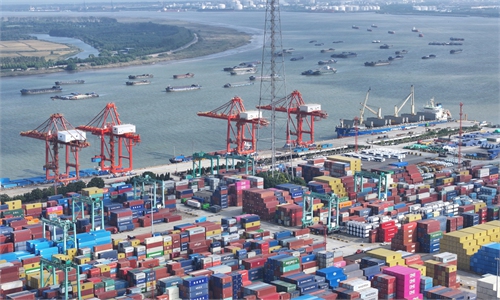
Foreign trade. Photo:VCG
The performance of a country's foreign trade depends on its economic scale, growth potential and competitiveness, which is unlikely to be significantly affected by external political factors. From January to October, China's total merchandise trade increased by 5.2 percent year-on-year, reaching 36.02 trillion yuan ($5 trillion).
China's foreign trade has displayed its competitive edge. In the context of the current major-country competition, the sustained robust growth of China's foreign trade is a testament to the country's economic resilience. There are several factors supporting China's foreign trade sector development.
First, the government's pro-growth economic policies and its firm commitment to expanding high-standard opening-up always back up the stable growth of foreign trade.
Second, China has a full-fledged manufacturing system and possesses all the industrial categories in the UN industrial classification.
Third, the vitality of China's foreign trade companies continues to gain momentum, in particular the privately-run enterprises. In the first 10 months, private enterprises' import and export reached 19.85 trillion yuan, an increase of 9.3 percent, accounting for 55.1 percent of China's total foreign trade shipments.
Fourth, China boasts a vast and continuously evolving domestic consumer market. As people's per capita income grows, their consumption patterns are changing, who have demonstrated a strong willingness to embrace new products.
China's competitive advantages in foreign trade are offering new growth points for the overall economy. For instance, the equipment manufacturing and high-tech manufacturing sectors in China have maintained a relatively fast growth rate this year. In the first 10 months, China exported 12.36 trillion yuan worth of electromechanical products, an increase of 8.5 percent year-on-year, which accounted for 59.4 percent of total exports. And, exports of data processing equipment and its components, integrated circuits, and automobiles have seen double-digit growth.
But some challenges remain which may impact foreign trade growth in 2025.
First, the ongoing risks of geopolitical conflicts and their spillover effects are driving up trade cost. Second, there is a slowdown in global market demand. Third, trade protectionism has raised its ugly head, with certain countries erecting higher trade barriers that seriously disrupt the stability of global industrial and supply chains.
Despite facing these challenges, China's foreign trade will maintain its strong resilience. As a responsible major economy, China is not only a driving force for global trade but it also plays a significant role in ensuring the normal operation of global industrial and supply chains. In terms of supply chains stability, China is an indispensable key player.
China has always been a staunch supporter of economic globalization. The door to China's opening-up will continue to widen. In recent years, China has been incessantly expanding imports through sponsoring trading fairs such as the annual China International Import Expo, allowing countries around the world to better share the opportunities of the Chinese market.

Gao Lingyun Photo: Courtesy of Gao Lingyun
China is firmly opposed to unilateralism and protectionism, upholding the role of the WTO. In terms of global trade governance, China actively contributes its wisdom and solutions, promoting and leading the reform of international trade rules.
As trade among Global South countries continues to ratchet up, China is to place higher emphasis on maintaining the multilateral system and supporting trade globalization to safeguard the interests of the developing countries.
Against the backdrop of rising "decoupling" and supply chain disruptions, China is actively working to maintain the safety and stability of global industrial and supply chains. China's continuously expanding trade in intermediate goods contributes to the stability of global supply chains and promotes the recovery of global trade.
The author is editor in chief of the Journal of World Economy of the Chinese Academy of Social Sciences' Institute of World Economics and Politics. bizopinion@globaltimes.com.cn



